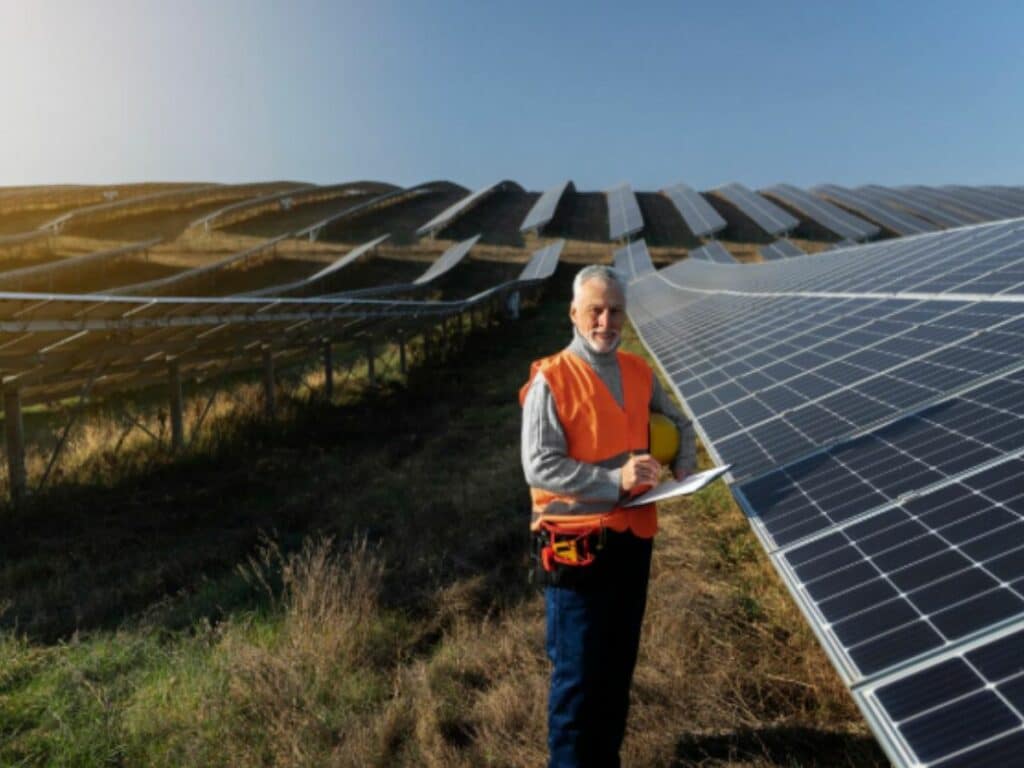More and more landowners in Girona are receiving proposals from photovoltaic companies interested in leasing their rural properties to install solar farms. The opportunity is obvious: stable income for decades and without the need to make a large investment.
However, along with the question of how much can be earned, another equally important question arises: how is this income taxed? The Directorate General of Taxes (DGT) has recently clarified the tax implications in the IRPF, VAT and IAE, especially in cases where the estate has several owners.
In this article we are going to break down, in simple language, what you should consider if you decide to rent your land for a solar farm in Girona.
Two ways to be taxed, depending on your role in the project
The key is to determine what your participation is: whether you just lease the property or whether you operate the solar plant yourself.
| Scenario | IRPF | VAT | IAE |
|---|---|---|---|
| You only rent the property | Income from real estate capital is declared according to the percentage of ownership. | You must issue a VAT invoice to the developer, each co-owner declares his share. | Classification: rental of rural real estate (Group 862); in practice, exempt for individuals. |
| You explode the solar plant | Income from economic activities: Taxation as an energy producer. | Complete obligations as an entrepreneur: invoicing and periodic declarations. | Classification: production of electrical energy (Epigraph 151.4), exempt if you are an individual, but with obligation to register in the census. |
When you only rent the land
This is the most common scenario. You cede the use of your property and it is the photovoltaic company that invests, installs and manages the solar plant.
- IRPF: The income you receive is considered income from real estate capital. You do not need to have employees or manage anything; you simply declare the income in your income tax return according to your percentage of ownership.
- IAE: It is classified as “rental of rustic real estate”. The fee is very low and, in practice, most individuals are exempt, although it is mandatory to report the registration in the census of entrepreneurs (forms 036 or 037).
- VAT: Although you are not a businessman in the strict sense of the word, you do have to charge VAT on your invoices to the developer. If you are several co-owners, each one does it in proportion to his share.
In short: you receive an annual royalty and are taxed as a lessor, with no added complications.
When you decide to operate the solar plant yourself
This is a much less frequent scenario, because it implies that you, as the owner, assume the investment and management of the plant.
- IRPF: In this case we are talking about income from economic activities, since you are producing energy to sell it.
- IAE: It is classified under the heading of electric energy production. The fee depends on the installed power, but as an individual you can be exempt.
- VAT: You have to act as an entrepreneur for all purposes: issue invoices, file quarterly returns and comply with all tax obligations.
This model can be very profitable in the long term, but it also requires capital, technical expertise and greater involvement.
What happens if the property has several owners
In Girona it is common for a property to have several owners (inheritance, co-ownership between siblings, etc.). The DGT clarifies this:
- If only the property is rented, each co-owner declares his proportional part in both IRPF and VAT. It is not considered a joint activity, unless a community of property is formally created.
- If the owners operate the plant together, then it is understood that there is a common activity and, therefore, it is taxed as a community of goods.
Practical summary for homeowners in girona
- If you rent: your income is taxed as real estate capital, you must issue a VAT invoice and you will probably be exempt from IAE.
- If you operate the plant: you are taxed as an economic activity and assume all tax obligations.
- If you are several owners: each one declares his share, unless you form a community of property.
Profitability and taxation go hand in hand
Renting land in Girona to install a solar farm can cost between €600 and €1,200 per hectare per year, with contracts of up to 30 years. It is an attractive opportunity to obtain a stable income by installing solar panels on land, but do not forget the tax implications.
Knowing in advance how you will be taxed in income tax, VAT and IAE will help you plan better and avoid surprises with the Treasury. If you are interested in knowing not only how much you could earn with your land, but also how to manage it correctly from a tax point of view, the ideal is to request a complete feasibility study for your solar farm.
